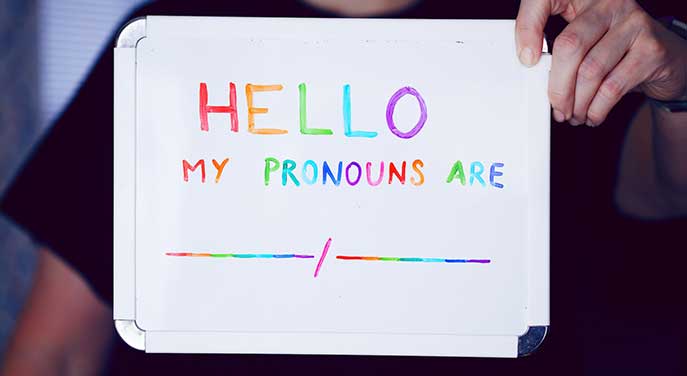The question now is: when will other provinces follow Alberta’s lead on gender policies?

For interview requests, click here
Alberta is setting a national example with its thoughtful approach to youth gender policies. Other provinces would do well to follow suit.
Premier Danielle Smith recently confirmed that transgender surgeries will be banned for individuals under 18. Puberty blockers and cross-sex hormones will be prohibited for those under 16, while youth aged 16 to 18 will require parental, psychiatric, and medical approval to access such treatments.
Biological females will retain competitive sports exclusively for themselves, while students under 16 seeking to change pronouns at school must first secure parental consent.
Fifteen years ago, these measures would have been considered uncontroversial. But times have changed. The rise in gender dysphoria among youth has brought intense debate. In the U.S., where trends often parallel Canadian experiences, the number of children prescribed puberty blockers or cross-sex hormones doubled from 2017 to 2021. Cases of gender dysphoria tripled during the same period.
Advocates of the “gender-affirming” approach argue that a person’s inner sense of identity must be affirmed by everyone around them, with medical interventions to align the body with the identified gender. The prevailing justification is that failing to affirm these identities could lead to mental health crises, including suicide.
These claims deserve scrutiny. If gender and biological sex are separate concepts, why must the body be transformed to match one’s sense of gender? Why can’t gender and sex remain distinct? Ironically, the act of transitioning reinforces the very link between biological sex and typical gender characteristics that advocates often seek to dismantle.
There are further contradictions. Many proponents of gender-affirming care champion the idea of gender fluidity, where one’s gender can change over time. This clashes with Canada’s conversion therapy laws, which make it illegal to counsel someone away from identifying with a gender different from their biological sex. Once a person identifies as a different gender, even temporarily, it becomes illegal to question or counsel against that identity. This effectively locks individuals into a path of transformation, regardless of doubts or second thoughts.
This rigid framework denies many youth the opportunity to grow into themselves naturally. For example, tomboy girls and boys who enjoy fashion are sometimes led to believe they are in the “wrong body.” During adolescence – a time rife with insecurities about appearance and identity – this notion can place a harmful and unnecessary burden on young people.
Would it not be better to tell youth their bodies are inherently good, giving them the time and space to mature into the individuals they were meant to be?
Keira Bell, a tomboy from the UK, is a powerful example of why caution is needed. As a teenager, Bell believed transitioning was the right path for her. At 15, she began a medical transition, only to regret it later. She sued the Tavistock Clinic, the facility that facilitated her transition, for failing to adequately explore her underlying issues.
“What was really going on was that I was a girl insecure in my body who had experienced parental abandonment, felt alienated from my peers, suffered from anxiety and depression, and struggled with my sexual orientation,” Bell later recalled.
The UK High Court agreed with her concerns. It ruled that children under 14 are unlikely to possess the capacity for meaningful consent to cross-sex medical interventions. For youth aged 14 to 15, this capacity was also “very doubtful.” Even for 16- and 17-year-olds, the court recommended additional safeguards, including a court order before proceeding.
Alberta’s policies align with these cautious findings. By limiting irreversible interventions for youth and ensuring parental involvement, the province is taking a balanced and protective approach to a complex issue.
These policies are not “anti-trans,” as some critics might claim. Rather, they are pro-child and pro-family, prioritizing the well-being of young people during their most formative years. Alberta’s measures recognize the importance of giving youth the chance to navigate their identity without rushing into decisions that may have lifelong consequences.
Canada as a whole should take note. The evidence suggests that a growing number of young people regret transitioning or find that their struggles were rooted in broader mental health or social issues. Alberta’s stance provides a thoughtful template for safeguarding the future of countless teenagers.
The question now is: when will other provinces follow Alberta’s lead?
Lee Harding is a Research Fellow for the Frontier Centre for Public Policy.
Explore more on Gender dysphoria, Gender politics, Genital mutilation, Transgender
The views, opinions, and positions expressed by our columnists and contributors are solely their own and do not necessarily reflect those of our publication.
© Troy Media
Troy Media is committed to empowering Canadian community news outlets by providing independent, insightful analysis and commentary. Our mission is to support local media in building an informed and engaged public by delivering reliable content that strengthens community connections, enriches national conversations, and helps Canadians learn from and understand each other better.


